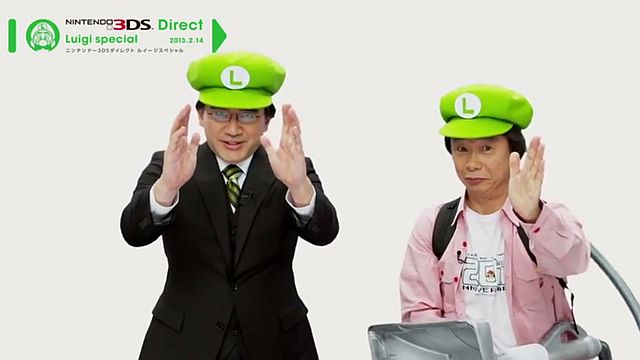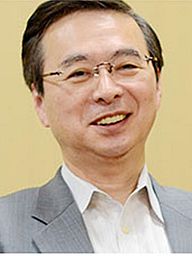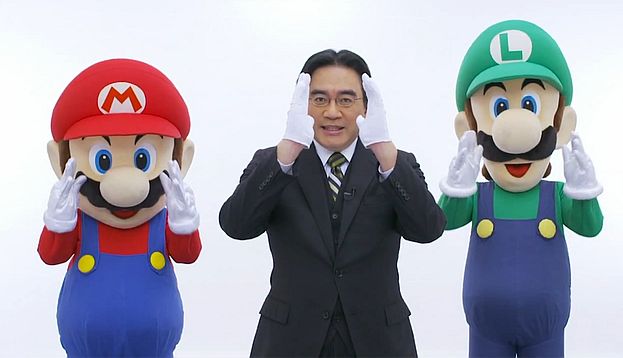The industry reeled this week as news spread that Nintendo’s chairman, CEO and president Satoru Iwata passed away, losing his battle with cancer. Tributes poured in after the unexpected death of one of the game industry’s leaders, who was a programmer and a game designer as well as a CEO. Yet as the industry deals with this event, the questions are in the air: What does this mean for Nintendo’s strategy going forward Who will take over as leader of Nintendo Will this change the struggle for market share in the gaming industry How will Nintendo’s marketing change To find the answers, [a]listdaily looked at the issues and spoke with some industry analysts.
Nintendo’s only public statement so far was brief: “Nintendo Co., Ltd. deeply regrets to announce that President Satoru Iwata passed away on July 11, 2015 due to a bile duct growth.” The release goes on to note “As a result, the following two Representative Directors remain at the company: Genyo Takeda (Representative Director; Senior Managing Director), and Shigeru Miyamoto (Representative Director; Senior Managing Director). Genyo Takeda and Shigeru Miyamoto will lead management while a formal successor is decided,” Nintendo spokesman Yasuhiro Minagawa said.
The impact of Satoru Iwata on Nintendo was immense. “Iwata-san was an inspiring and popular leader, who had a transformative impact on Nintendo,” noted analyst John Taylor. “He not only led the company while it hit the stratosphere due to the record success of the DS and Wii platforms, but he also helped Nintendo adjust to the rapid changes in western gaming habits, such as online features and digital content.”
Taylor continued, “While the company was slow to respond to the competitive challenges posed by smart phones, he helped champion the need and forged the partnership with DeNA to expand into mobile gaming. During his tenure, Nintendo dramatically increased the size of the gaming community, by bringing in people who would never have considered trying a controller. Many of these folks are now comfortable with other types of devices. It’s up to the next generation of Nintendo leadership to help win them back.”
Nintendo has been through some rough times in recent years, though this last year saw a return to profitability. The company reported a ¥41.8 billion net profit for the fiscal year ending March 31 — reversing a ¥23.2 billion loss a year ago — while revenue slipped 3.8 percent to ¥549.8 billion. Sales of the Wii U, while improving, are still well behind both the PlayStation 4 and the Xbox One, and nowhere near the massive success of the Wii. The 3DS handheld line has performed better, but it’s still not up to the level of the Nintendo DS line, and most analysts chalk that up to the increasing strength of the mobile game market.
 Satoru Iwata and Shigeru Miyamoto
Satoru Iwata and Shigeru Miyamoto
“I think that the company needs to rethink its strategy and believe that they can be far more successful going forward if they exploit their IP, and I am hopeful that his successor chooses the right path,” said Michael Pachter, managing director of Wedbush Securities. “With that said, I think we should respect Mr. Iwata for his efforts, and should remain respectful until a successor is named.”
Iwata had embarked on several major initiatives in order to restore Nintendo’s profits to the heady levels of the Wii’s heyday. The “Quality of Life” initiative, which has to do with Nintendo creating medical devices designed to improve people’s lives in some ways, was clearly a very special, important project for Iwata from his multiple public statements about it. More recently, Nintendo purchased 10% of mobile game company DeNA as part of an agreement where the two companies will collaborate on creating mobile games (for smartphones and tablets) using Nintendo characters, with the game designs and most of the execution being conducted by Nintendo. Nintendo is also licensing its iconic characters to Universal for theme park development. Finally, Iwata had also announced that Nintendo is working on a new console, codenamed NX, about which the company plans to release more information in 2016.
“I’m not sure I’ve got a good answer for who will likely be his replacement,” Taylor conceded. “The skill set necessary includes both an appreciation of Nintendo’s unique culture, along with awareness of the diversity in markets and evolution of the way consumers play in the West, Japan and in emerging markets. Nintendo is in many ways a tradition bound company, so it will be paramount that the new CEO can earn and hold the trust of long term creative teams led by Mr. Miyamoto.”
Nintendo is definitely a conservative company in some ways, despite developing wildly creative games and game hardware. Since its founding in 1889, Nintendo has had only four presidents, and Satoru Iwata was the first president not related to founder Fusajiro Yamauchi. The president before Iwata was Hiroshi Yamauchi, the grandson of the founder, and he served in that role from 1949 to 2002, an astounding 53 years that saw Nintendo transform from primarily a playing card company to a leader in electronic games. We should expect Nintendo to pick a new leader carefully, and probably from within its own ranks.
 Genyo Takeda
Genyo Takeda
The two most likely candidates at this point would seem to be the two senior members of the management team referenced in Nintendo’s brief statement: Shigeru Miyamoto and Genyo Takeda. Miyamoto is an iconic figure in the game industry, responsible for many of Nintendo’s greatest hits, including the creation of Mario. He’s also been leading game development at Nintendo for years. Takeda is the leader of Nintendo’s hardware division, responsible for the Wii and the DS series as well as more recent hardware. Both men have worked closely with Iwata for years and would likely follow through with Iwata’s grand strategy.
The board of directors, which will be making the leadership choice, is almost entirely composed of Nintendo employees. The current board was remade by Satoru Iwata over the past several years as many of the previous board members retired. Iwata’s strategy for Nintendo certainly has the agreement of this board, so it’s unlikely that we’ll see major changes in direction for Nintendo. Both Miyamoto and Takeda were close to Iwata and very familiar with his vision for the company, and both have significant management experience at Nintendo and many successes to their credit. Miyamoto has a higher public profile, but that has never seemed to matter much to Nintendo. The company is much more focused, traditionally, on making great games rather than generating great publicity.
Regardless of who is chosen as the new leader of Nintendo, a major change in direction is unlikely. Iwata had already taken a number of bold steps that will take years to realize fully. What is likely to occur is that over time, Nintendo’s strategy will begin to diverge from what Iwata had set forth, as the new president puts his own stamp on the company. Nintendo’s strategy will no doubt change as the marketplace changes — and as the market responds to Nintendo’s new initiatives.
There will certainly be an impact on marketing efforts by both Nintendo and Nintendo’s rivals as Nintendo’s strategy unfolds. The new mobile games will doubtless require significant marketing efforts from Nintendo, both in the mobile market and among Nintendo’s broad fan base. Nintendo may well choose to cross-market these mobile games in some way with its console games. We’re also likely to see much more effort in marketing by Nintendo this holiday as it tries to keep interest in the Wii U high. As the new NX system approaches, you can expect a significant marketing effort to support that both by Nintendo and by third-party developers, which rumor suggests Nintendo is already courting to support the new system. Significant new initiatives, of which Nintendo has several, usually demand significant marketing epxenditures, and thus an increase in Nintendo’s marketing spend for the rest of this year and beyond is to be expected.
Nintendo’s bold move into mobile games will begin to be seen this year, and we will learn more about its new NX console hardware — and possibly even see it introduced into the market — next year. Both of these could have a significant impact on the gaming industry as well as Nintendo. One thing is for sure: Satoru Iwata’s impact on the game industry will continue to reverberate for years to come.

